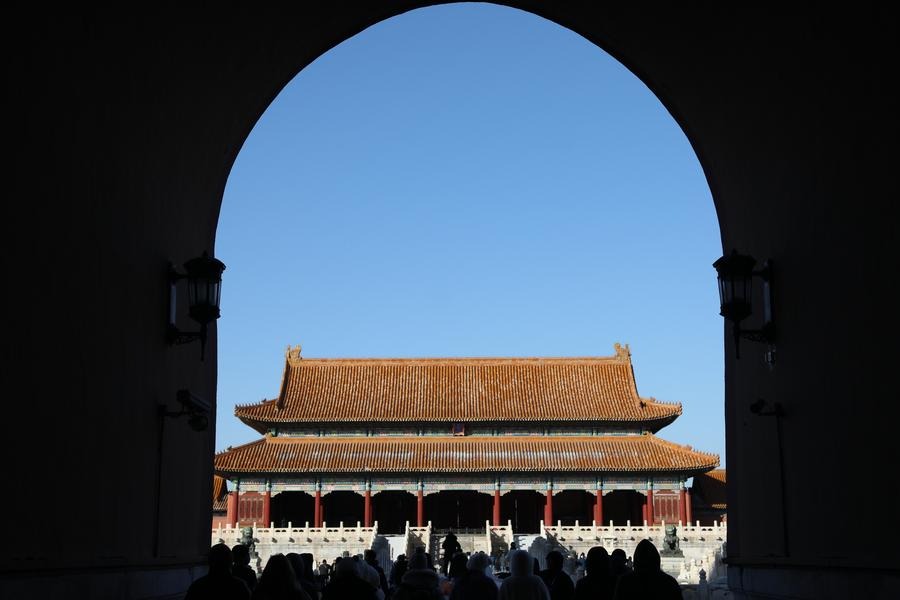Best choice


In its own interests as well as the world's, US should opt for cooperation with China rather than containment and suppression
The relations between China and the United States have entered a critical period, both from the perspectives of the global landscape and the course of history. The development of bilateral relations, which mostly depends on choices made by the US, is of great significance to the bigger picture of global peace and development.
Since the turn of this century, the power gap between China and the US has been narrowing, across a large set of economic, technological and military indicators.
Since 2018 the US government has made dramatic changes to its China policy-taking China as a major strategic competitor. It has sought to undermine China's political and financial security by launching a trade war, containing Chinese technology companies and provoking a diplomatic face-offs. Bilateral relations have been dominated by competition and confrontation.
A world in which major powers confront with each other is inevitably going to be divided and turbulent, with the risk of conflicts or even wars, which will in turn hurt the interests of the major powers.
Therefore, as the world's two major countries, China and the US should view and manage the bilateral relationship from the perspective of being highly responsible for the whole of humanity.
Regrettably, the US, a master in strategies and geopolitics, is short of cultural and historical awareness. US elites are good at understanding things on a strategic level, but lack the capability to view and understand global and historical developments from a broader perspective of the grand history of humanity, especially the evolution of civilizations. US doomsayers have repeatedly predicted a so-called collapse and color revolution in China, but neither has occurred.
The US needs to have a better understanding of China's rise from a historical perspective.
History tells us that a country's behavior pattern is dependent on its strength as well as its cultural genes. The argument that a strong nation is bound to seek hegemony finds no supporting case in China's history and goes against the will of the Chinese people. China has always upheld the principle of "seeking harmony without uniformity". Both historical inheritance and practical interests determine that China will not challenge the existing international order or, as some Western countries used to, seek hegemony with strength and seek profits by flexing muscles. Rather, China is taking a path of peaceful rise by showcasing inclusiveness with other nations and civilizations, integrating with the existing international order and seeking harmonious co-existence with the rest of the world.
This is supported by countless historical evidence, near or far. Over the thousands of years before it entered modern times, China was a powerful nation, but it did not use its strength to bully weaker ones through invasion, occupation or colonization. Therefore, there was rarely war among East Asian nations as China maintained long-lasting peaceful and stable relations with its neighbors, in sharp contrast with frequent wars on the European continent.
An increasingly stronger China means more major-country responsibilities. "If poor, they attended to their own virtue in solitude; if advanced to dignity, they made the whole kingdom virtuous as well," said Meng Zi, a Confucian master, who lived more than 2,000 years ago. This ancient Chinese maxim describes the lofty aspirations and vision cherished by the Chinese people. China is pursuing the establishment of a harmonious world and pushing forward the building of a community with a shared future for mankind.
Along with its peaceful rise, China is both fulfilling its responsibilities to its own people and contributing to the common good of the world, providing more global public goods-such as the Asian Infrastructure Investment Bank, the Silk Road Fund and the Belt and Road Initiative-and shouldering more global responsibilities in such areas as peacekeeping, disaster relief, combating the pandemic and debt relief. As it pursues its peaceful rise and the great rejuvenation of the Chinese nation, China is bound to make greater contributions to the cause of human progress.
In the face of the rise of China, the US has two options-containment and suppression or pursuing mutually beneficial cooperation. Should the US be determined to contain the rise of China, it will have to decouple itself from China and confront it, which is bound to hurt the development of the US and accelerate its decline. Take the economic arena as an example, the increase of a country's economic strength is determined by the division of labor and market forces. Division of labor results in the exchange of goods or services.
If the US withdraws from the enormous Chinese market, it will soon be replaced by other countries or by China itself. The restrictions imposed by the US on exports to China's chip makers belong to such category. The US has lifted a rock only to drop it on its own feet.
The US position and interests in the new global landscape could be safeguarded to the greatest extent if the US adopts a simple shift in thinking to incorporate China into the existing international and regional order, which was built and is dominated by the US, and builds a fairer and more reasonable international and regional order acceptable to more countries through working with China to make improvements and adjustments.
The world's two major powers will inevitably compete with each other, but such competition should be like a foot race in which the victory is earned by outrunning others, instead of a boxing match in which the winner knocks down the opponent. Winning the competition should be based on one's own efforts instead of striking down your opponent. Therefore, China and the US should have goodwill competition and pursue mutually beneficial cooperation.
The author is deputy director of the Institute of World Economics and Politics at the Chinese Academy of Social Sciences. The author contributed this article to China Watch, a think tank powered by China Daily. The views do not necessarily reflect those of China Daily.


































